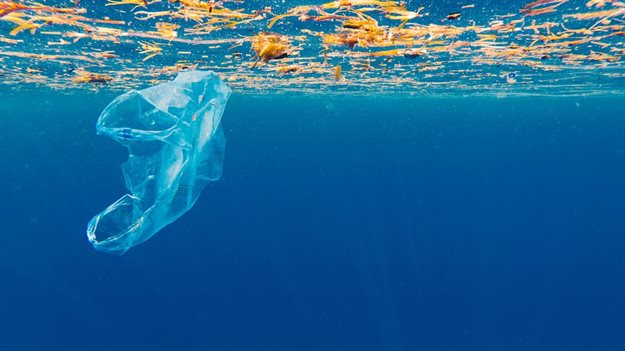The year 1907 was a time for celebration. Clever humans had invented a material that was more malleable than metal, more durable than wood and more cost-effective than glass. It was magic, and they called it... plastic.
Soon, plastic could be found at Tupperware parties, bottling factories and in just about every household in the world. Moms were sending their kids to school with plastic lunch boxes, wives were taking groceries home in plastic shopping bags and stores were ordering trolleys made of, you guessed it, plastic!
Since then, we’ve managed to produce a whopping 6.3 billion tonnes of plastic, and we’ve only recently stopped to realise the problem. We’ve filled our planet with one of the least biodegradable materials that has ever existed, and forgot to devise a plan for getting rid of it! Perhaps we’re not as smart as we thought back in 1907, huh?
Fast forward to 2020. Plastic waste has left us with rapidly rising landfills, polluted rivers and oceans, dying wildlife and struggling tourism industries. In fact, it’s estimated that eight million tonnes of plastic leak into the ocean every year.
If we didn’t have a plan before, we need one now. As in right now! This plan needs to go where other waste disposal solutions have never gone before. It needs to be innovative, pioneering, downright genius!
You see, plastic is extremely tricky to destroy. We tried burning it, but that just gave off toxic chemicals like dioxins. We tried recycling it, but that’s just a way of delaying its eventual trip to the landfills – which means passing the problem on to our youth.
People like Greta Thunberg will tell us to stop producing plastic altogether. She’s not wrong, but it’s more complicated than that. What do we do with the 6.3 billion tonnes that we’ve already created? What about the alternatives, which can actually be more environmentally damaging?
For example, without plastic containers, the amount of food waste globally could have devastating effects on our planet. Nearly a quarter of our water supply is wasted in the form of uneaten food, and rotting food is a serious source of methane gas. If you don’t already know, this is a greenhouse gas with 21 times the global warming potential of carbon dioxide. You see the problem, don’t you?
Then there are products that still need plastic because we haven’t found a more organic solution yet. Take feminine hygiene products, for example. The vast majority of pads and tampons are made, at least in part, of plastic. They can’t be recycled for sanitary reasons, and we haven’t yet found an alternative that aligns with cultural norms for female hygiene.
What we’re trying to say is this. No matter how many magic lamps we rub, plastic production isn’t going to come to a standstill overnight. The phasing out of this troublesome material is going to be slow and complicated, and we need to do something while we wait. That ‘something’ is biodegradable plastic.
These are plastics that biodegrade through a series of biological processes in a landfill disposal environment. While regular plastics can take up to 1,000 years to break down, biodegradable plastics are broken down at a comparatively rapid rate. Here’s how it works.
The microorganisms that live in landfills feed off carbon and break it down into tiny bits. The problem is that the carbon in plastic exists in chains called polymers and these are too long and hard for microorganisms to break down. Biodegradable Future’s organic additives change the DNA of regular plastic so that microbes in landfills, oceans and soil can consume it more easily.
Biodegradable plastics can be just useful as regular plastics, too. They maintain their strength, they’re affordable and the additive can be applied to the vast majority of plastic products. They can be foamed into packing materials, injection-moulded in modified conventional machines and co-injected with other plastic materials like LDPE, PP and HDPE.
Obviously, biodegradable plastics are just one piece of the ‘Save Our Planet’ puzzle. We still need to recycle, we still need to look for plastic alternatives that can be manufactured with minimal environmental impact, and we definitely still need to make an effort to safeguard our oceans from pollution.
Still, Biodegradable Future’s organic additives are an attractive solution to a problem that is now a matter of urgency. If you’re interested in learning more about our additives, and how they could lower your company’s global footprint, get in touch with Dean Lynch at moc.erutufelbadargedoib@naed.






































